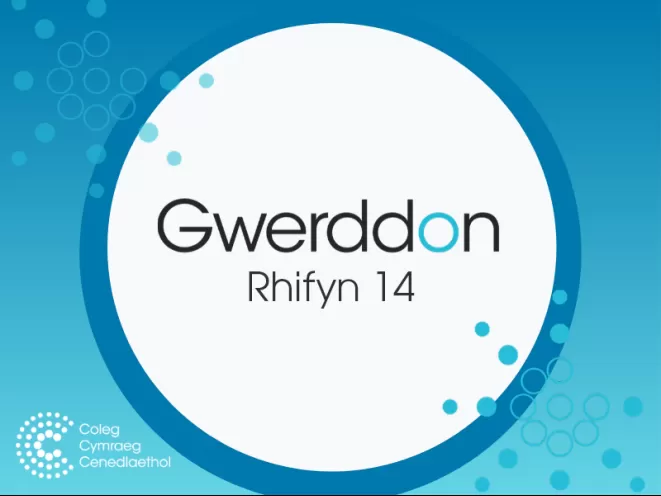The purpose of this article is to determine the benefits of singing in a group on people who have dementia, specifically through the ‘Singing for the Brain’ sessions held in North Wales during 2012–13 by the Alzheimer’s Association. Previous research of group singing in the field of music and dementia will be discussed as well as looking at how ‘Singing for the Brain’ first started in Britain. The article will then focus on the fieldwork that was undertaken, presenting conclusions, and finally dealing with and evaluating these conclusions.
Music for the Memory: The effects of the Singing for the Brain project on memory and the quality of life of pe...
The love-songs of Iolo Morganwg, with particular reference to 'Y Ferch o'r Scerr' ('The Lady of Sker')
The manuscripts of Iolo Morganwg (1747-1826), as well as his collection of native folk-songs, give us a unique insight into an important period in the history of Welsh culture during the eighteenth and nineteenth centuries. The central focus of this study is the love-songs found in his collection, together with the wider social context and background which serve to underpin the folk songs. One can trace this tradition to the poets of the nobility, and especially to the age of Dafydd ap Gwilym. Also one folk-tune in particular will be discussed in detail, ‘The Lady of Sker’. The love story, the folk-tune and the words which are normally associated with ‘The Lady of Sker’ are all well-known in several circles, however the folk-tune recorded by Iolo is totally unknown.
'One Cry Four Voices': The influence of choral singing on health and welfare in Wales
Since the Nineteenth Century, choral singing has played a prominent part in Welsh culture and society. In the latter part of the Twentieth Century, there were increasing demands to consider the influences of quality of life and well-being on health. As a result, there is a growing field of research that considers the role of the community arts, and choral singing in particular, as social capital, and the way in which they can influence personal and social health and well-being. Due to this growing recognition, this article will consider research that examines the relationship between amateur choir-singing in Wales – as both a musical and social event – and general health and well-being.
Esboniadur Cerddoriaeth Cymru
Cofnodion yn ymwneud â cherddoriaeth Gymraeg a Chymreig. Mae'r cofnodion yn deillio o'r Cydymaith i Gerddoriaeth Cymru (gol. Pwyll ap Siôn a Wyn Thomas), cyfeirlyfr awdurdodol sydd yn cwmpasu holl gyfoeth cerddoriaeth yng Nghymru o’r 6ed Ganrif hyd at y presennol. Ffrwyth prosiect cydweithredol rhwng Ysgol Cerddoriaeth a’r Cyfryngau ym Mhrifysgol Bangor a’r Coleg Cymraeg Cenedlaethol yw’r Cydymaith i Gerddoriaeth Cymru. Cyhoeddir Cydymaith i Gerddoriaeth Cymru ar ffurf llyfr clawr caled gan wasg Y Lolfa, Talybont gyda chefnogaeth a chymorth ariannol Y Coleg Cymraeg Cenedlaethol.
Cydymaith i Gerddoriaeth Cymru – gol. Pwyll ap Siôn a Wyn Thomas
Cyfeirlyfr awdurdodol sydd yn cwmpasu holl gyfoeth cerddoriaeth yng Nghymru o’r 6ed Ganrif hyd at y presennol. Tros 500 o gofnodion yn amrywio o gerddoriaeth gynnar i gerddoriaeth gyfoes, o gantorion gwerin i gerddorfeydd. Ffrwyth prosiect cydweithredol rhwng Ysgol Cerddoriaeth a’r Cyfryngau ym Mhrifysgol Bangor a’r Coleg Cymraeg Cenedlaethol yw’r Cydymaith i Gerddoriaeth Cymru. Cyhoeddir Cydymaith i Gerddoriaeth Cymru ar ffurf llyfr clawr caled gan wasg Y Lolfa, Talybont gyda chefnogaeth a chymorth ariannol Y Coleg Cymraeg Cenedlaethol. Mae'r holl gynnwys hefyd ar gael ar Esboniadur Cerddoriaeth Cymru, sef adnodd agored ar-lein gan y Coleg Cymraeg Cenedlaethol.
Early community newspapers in north Wales and Welsh-language rock music
Since the advent of the papurau bro (community newspaper) movement in Wales in the 1970s, hundreds of articles on rock music have appeared in their pages, giving publicity to local rock bands, gigs, new releases, and so forth. However, these have received no scholarly attention. The present article explores the nature and influence of this little-known collection of sources, positing that this material throws light on the workings of the music scene at a regional and local level, and also that the register of these writings reveals something of the agenda of the contributors: an emphasis on justifying not the existence but the cultural worth of Welsh-language rock music to the older generation influenced young writers and champions of the pop world.
A Battle for Language, Language Battles: Terminology of the Welsh pop world in the 1960s and 1970s
This article offers a detailed examination of the relationship between the campaign to revitalise the Welsh language in the 1960s and 1970s and the coining of new words in Welsh-language popular music. It concentrates on attempts to adapt Welsh to the circumstances of the pop world during this period in particular, and examines the ideological consequences of various strategies for coining terms that were used by writers.
“At the top once again”: early Welsh language pop charts
This article contains an analysis of the pop charts of three Welsh newspapers during the year 1972, concentrating on regional and national trends, and also on the performance of rock records in the charts. It is argued that Welsh language pop charts are of use as indicators of likely sales, but also because of their role as a medium for the record-buying public to participate in the Welsh pop world.
Cynhadledd ‘Boddi mewn Celfyddyd’: Gwaddol ’65
Hanner can mlynedd ar ôl boddi Tryweryn, trefnwyd cynhadledd i gasglu ynghyd a gwerthfawrogi’r gwaddol celfyddydol a ysbrydolwyd gan foddi’r cwm mewn cynhadledd deuddydd mewn lleoliad arbennig nid nepell o Dryweryn. Yn ystod y gynhadledd, traddodwyd darlithoedd gan Dafydd Iwan a Manon Eames, a chafwyd arddangosfa aml-gyfrwng unigryw yn dogfennu hanes y boddi, a’r cynnyrch celfyddydol a grëwyd yn ei sgil. Cafwyd hefyd gyfle i ymweld â Thryweryn a chlywed am brofiadau ac atgofion Aeron Prysor Jones am foddi’r cwm, yn ogystal â mwynhau detholiad o’r ddrama Porth y Byddar gan Manon Eames, o dan gyfarwyddyd Siwan Llynor. Noddwyd y gynhadledd gan y Coleg Cymraeg Cenedlaethol a Phrifysgol Bangor.









